With science teaching-learning in schools stuck in a time warp, science educators and evangelists advise parents to take the lead in providing children opportunities to discover the wonders of science outside of school. ParentsWorld suggests ways and means to enable parents to provide children access to enjoyable, experiential science education – K.P. Malini, Mini P. & Cynthia John

“Everybody starts out as a scientist. Every child has the scientist’s sense of wonder and awe.” — Carl Sagan, American astronomer and science populariser (1934-1996)
Every child has an innate curiosity to explore, investigate, ask questions and seek answers. Unfortunately, since 1835 when Thomas Babbington Macaulay, the First Baron Macaulay, wrote his famous minute on the future of Indian education replacing Persian with English as medium of instruction to provide “useful education” to the people of India and to “form a class Indian in blood colour but English in tastes, in opinions, morals and intellect,” the natural inquisitiveness of children has been discouraged across the education spectrum — from early childhood education and subsequently in primary-secondary and even higher education. With the great majority of India’s 1.5 million schools steeped in rote learning and chalk-n-talk pedagogies and regurgitation of facts for examinations, science teaching-learning has become the biggest casualty.
To this day, in India’s classrooms science subjects continue to be taught from textbooks with teachers reciting scientific facts and insisting on their absorption. Hands-on experiential learning, if any, is restricted to ritual once-a-week science lab sessions. Little wonder that the overwhelming majority of school-going children in India have developed aversion, if not fear and loathing, to science.
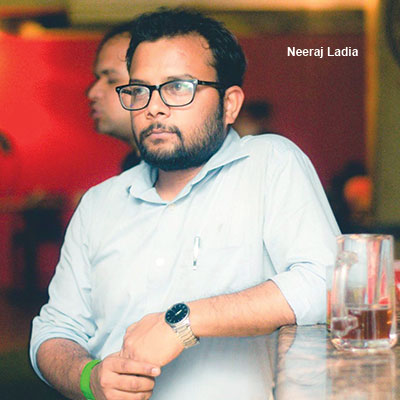 “There is something seriously wrong with the way science is being taught in India’s schools. Science is best learnt through experimentation and discovery in experiential laboratories where children learn cause-effect thinking. There’s urgent need to overhaul science teaching in our schools to enable children to develop scientific temper and mindset. Enthusiastic learning of science subjects helps children develop critical thinking, observation, logical thinking, reasoning, deduction, and problem solving skills. These are critical for success in all professions not merely science careers,” says Neeraj Ladia, an alumnus of Guru Gobind Singh Indraprastha University, Delhi and astronomer and Chennai-based business head of SPACE, a company which offers astronomy/space sciences education to school students.
“There is something seriously wrong with the way science is being taught in India’s schools. Science is best learnt through experimentation and discovery in experiential laboratories where children learn cause-effect thinking. There’s urgent need to overhaul science teaching in our schools to enable children to develop scientific temper and mindset. Enthusiastic learning of science subjects helps children develop critical thinking, observation, logical thinking, reasoning, deduction, and problem solving skills. These are critical for success in all professions not merely science careers,” says Neeraj Ladia, an alumnus of Guru Gobind Singh Indraprastha University, Delhi and astronomer and Chennai-based business head of SPACE, a company which offers astronomy/space sciences education to school students.
With science teaching-learning in schools stuck in a time warp, science educators and evangelists advocate and advise parents to take the lead in providing children opportunities to discover the wonders of science outside of school. “Parents need to supplement science teaching in schools which tends to be focused on theory and memorisation. This can be done in simple ways such as enrolling children in after-school science workshops, buying them science kits and demos, and using the Internet and online resources to conduct science experiments at home,” says Swaminathan Balasundaram, an alumnus of Madras Christian College and founder-director of Young Scientist (estb.2015), a Chennai-based company which offers hands-on science workshops for children.
A collegium of science educators interviewed by ParentsWorld recommends the following simple ways by which parents can arouse love for the wonders of science in children:
Workshops. Several organisations conduct after-school, weekend and summer science learning workshops. Search and enrol children in an age-appropriate workshop and/or summer camps.
Lavanya Murugan, a teacher of Indian origin in Lewsiville, Texas, recalls how enrolling her son Kabilan (14), a class VIII student, in a summer science camp ignited his latent interest in science and technology. “During the summer camp he was assigned a project to design an interactive video game. He did everything from creating the characters to engineering the digital game. It was a simple summer camp activity which won him the first prize and transformed him into a science and technology buff,” recalls Lavanya.
Science kits. Excellent science kits with detailed instructions and video tutorials are available in the market. Adult help may be required to complete some activities.
Science equipment. Microscopes, binoculars, measuring instruments and telescopes are excellent long-term investments to encourage children to explore the wonders of science and scientific concepts.
Home experimentation. The Internet and youtube feature a plethora of scientific experiments which can be conducted at home. Provide materials for children to conduct safe science experiments at home.
Summer science programmes
ParentsWorld has also curated a summer programmes guide to enable parents to provide children access to experiential, hands-on science education.
Young Technology Scholars
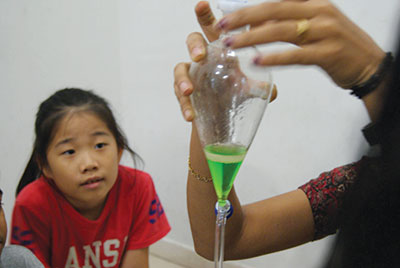 Young Technology Scholars is a two-week residential summer programme for class X-XI students conducted by the Pathways World School, Aravali, Gurgaon. It is open to students of all streams including arts and commerce.
Young Technology Scholars is a two-week residential summer programme for class X-XI students conducted by the Pathways World School, Aravali, Gurgaon. It is open to students of all streams including arts and commerce.
Date: June 1-14, 2019
What to expect:
• Classroom lectures by top notch science and technology faculty from around the world.
• Hands-on interdisciplinary projects integrating engineering principles with basic sciences, under guidance of mentors.
• Exposure to computational programming, electronic circuitry and mechanical design.
• Platform to showcase student projects.
Website: www.youngtechscholars.org
Bioscience and Pre-medical Summer School Programme
The Kolkata-based SHRM Biotechnologies Pvt. Ltd is offering a one week non-residential bioscience summer school programme for class VIII-XII students to introduce them to DNA, RNA and rDNA technologies, cell biology, medical microbiology and public health, nanotechnology and plant sciences.
Dates: May 27-31, 2019
Venue: Salt Lake, Kolkata
Fee: Rs.3,500-5,000
Contact: 91 8981-003215
website: www.shrmbio.com
Amity University Summer School Programme
The top-ranked Amity University, Noida is conducting several two-week summer programmes in science and technology for school students.
Options: Courses in biotechnology, nanotechnology, forensic science, computer science, aerospace & avionics, electronics & communication, networking & telecommunication, automobile engineering and space science & technology.
Date: May 17-June 7
Venue: Amity University campus, Noida (Amity University Summer School)
Contact: 0120-4735612 / 2432500
Fee: Rs.14,000 including residential accommodation.
Website: www.amity.edu/summerschool/
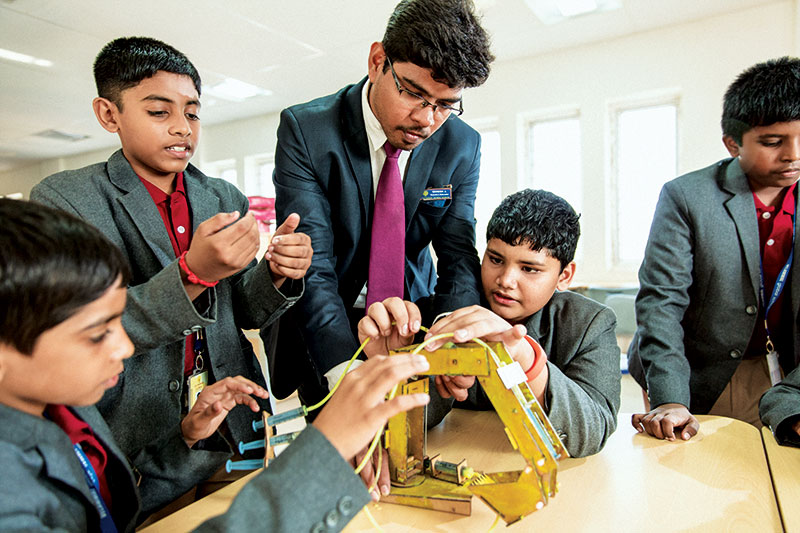
Oxford Summer Courses
The UK-based Oxford Summer Courses is conducting ten-day courses in natural sciences, medicine, and computer science for secondary school students in India.
What to expect. Faculty from the top-ranked Oxford University, UK will offer traditional Oxford-style tutorials and conduct hands-on learning workshops for students.
Age group: 14-17 years.
Date: June 2, 2019
Venue: Schools in three locations — Mumbai (Panvel), Delhi and Bangalore
Fee: Rs.99,000
Contact: Email: [email protected]; website: https://oxfordsummercourses.com/india/
Creya Learning Summer Camp
The Hyderabad-based supplementary science and technology education company Creya Learning (estb.2012) is conducting a summer camp to introduce children to construction engineering, history of architecture and architectural forms, design fundamentals, etc.
Age group: 6-9 years, 10-15 years
Date: Morning and evening sessions during the months of April and May
Venue: 7/A, No. 12, MLA Colony, Banjara Hills, Hyderabad
Contact: 9618054515
Website: www.creyalearning.com
Wildlife Summer Camp
Bangalore-based Frolic Boonies is organising a wildlife and adventure camp blending science, art and nature education.
Activities: Bird watching, river rafting, flora and fauna exploration and observation.
Age: 8-16 years
Contact: 9448476888
website: www.frolicboonies.com
Young Scientist Workshop
The Chennai-based Young Scientist is conducting its annual Blooming Scientist Workshop, Electricity Camp and other workshops for school children
Date: May-June, 2019
Venue: Sholinganallur, Chennai
Contact: 72006 57181, 73581 61490; email: [email protected]
Agastya summer camp
The Bangalore-based Agastya International Foundation was promoted in 1999 by Ramji Raghavan, a former Citibank investment banker, to provide hands-on experiential science education to rural children who are bussed into its well-equipped science learning centres and labs. Since then, Agastya has provided practical science education to over 1.5 million children and 200,000 teachers from government schools on its state-of-the-art 172-acre science learning centre in Kuppam (Andhra Pradesh), 50 satellite science centres, 130 mobile science vans, and science fairs.
This summer, Agastya is conducting free-of-charge summer camps for children of government schools. The camps offer project-based science activities for children in the age group 10-15 years in government schools across 19 states.
Date: May
Contact: (+91 80) 41124132 & (+91 80) 23545054
Bird watching
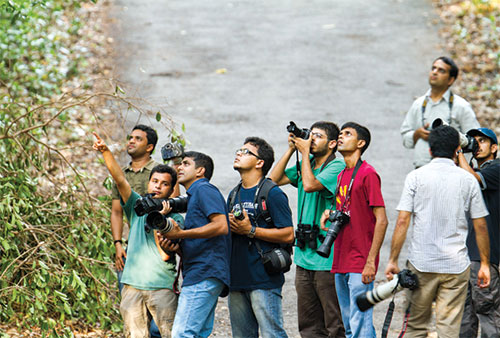 An enjoyable nature-based science activity children love to pursue is birdwatching, aka birding.
An enjoyable nature-based science activity children love to pursue is birdwatching, aka birding.
Dr. C. Sreedharan, professor and head of the department of wildlife, University of Veterinary Science, Chennai, provides a beginners’ guide to birdwatching:
Get started
Step outdoors for 10-15 minutes into a nearby park/lake/garden.
Note down details about bird sightings — tail size, wing markings, etc.
Listen for avian sounds.
Buy a book (The Book of Indian Birds by Dr. Salim Ali) or use Internet/online resources/apps to help you identify local avian species. Popular birding apps include Ebird, eGuide to Birds of the Indian Subcontinent and BirdsEye.
Invest in a pair of binoculars which will enable you to sight feathered birds up close.
Alternatively, use a camera with a zoom lens or download an app that helps your phone zoom in birds.
Birding tours. India hosts more than 1,250 avian species. Several organisations offer birdwatching tours. Among them is Thrillophilia, Bangalore (https://www.thrillophilia.com/cities/bangalore/tags/birding)
and Birding in Uttarakhand, Himalayas (https://birding.co.in/)
Child citizen scientists
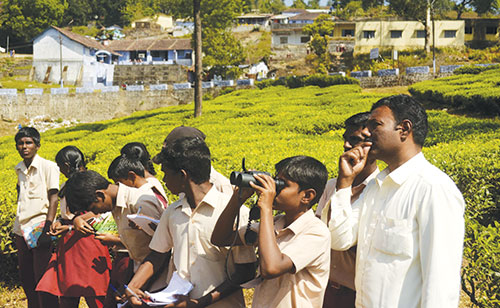 Citizen science, aka community science, wherein members of the public participate in scientific research projects in collaboration with professional scientists, is fast evolving as an excellent and popular option to enhance the public’s understanding and engagement with science. Increasingly, professional scientists and researchers are inviting the help of citizens as ‘research partners’ to observe, collect and analyse data for scientific, in particular natural resources-related, research projects.
Citizen science, aka community science, wherein members of the public participate in scientific research projects in collaboration with professional scientists, is fast evolving as an excellent and popular option to enhance the public’s understanding and engagement with science. Increasingly, professional scientists and researchers are inviting the help of citizens as ‘research partners’ to observe, collect and analyse data for scientific, in particular natural resources-related, research projects.
For instance, a popular citizen science project launched by the National Centre for Biological Sciences, Bangalore is Season Watch, an India-wide programme that studies the changing seasons by monitoring seasonal cycles when common trees flower and fruit. More recently in March this year, SeasonWatch organised a bioblitz event — the Spring Tree Quest — inviting citizens to collect data on trees of India. Over 50 schools and nine colleges in 22 states and five Union territories contributed data on 15,000 trees for the Spring Tree Quest. There will be three more bioblitz events this year (https://www.seasonwatch.in/).
Sign up for a citizen science project
Encourage your children to sign up for a citizen science project. You can prompt her to become a citizen scientist by providing her a special notebook where observations can be recorded in writing, hand-drawn graphics, photographs, and audio/video recordings.
Here are some interesting citizen science projects that you and your children can sign up for:
• India Birds, a global network of bird nesting sites (migrantwatch.in)
• Marine Mammal Conservation Network of India. Web-based reporting of marine mammals.(marinemammals.in)
• Lost Amphibians of India (lostspeciesindia.org)
• Project PteroCount: The South Asian Bat Monitoring Programme (migrantwatch.in)
• SeasonWatch. Track climate change by monitoring flowering, fruiting and leafing of trees. (seasonwatch.in )
Connect with nature
Here are 4 simple ways parents can arouse the interest of children in science and to help them connect with nature:
Nature scrapbook. Make a scrapbook of plant leaves, research and identify plant species and varieties.
Collections. Collect pebbles, feathers, seeds and sand. Use them to make ‘natural’ crafts, or label and display them on a notice board.
Videos. Search and watch videos of natural wind movements, tornadoes, rain formation and more.
Volunteer. Encourage children to sign up for environment conservation projects to save lakes, clean up beaches, create awareness about climate change, etc.























